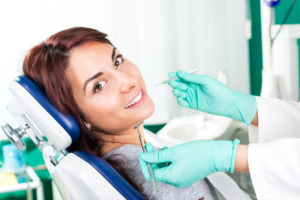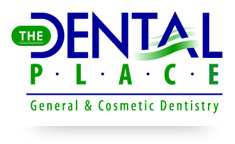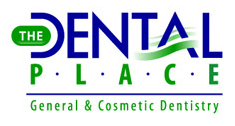19 Aug The First Signs of Gingivitis
 Gingivitis is early-stage gum disease. Many times, gingivitis can be asymptomatic in the beginning but there are some common indicators that gum tissue is inflamed and irritated. The most common noticeable symptoms that a patient may see are red or inflamed gums, gums that bleed when flossing or brushing, and recession of the gum line that exposes more tooth structure (the roots of teeth). During cleanings and checkups, our staff and our dentist will look for signs of gum disease. If caught early on, patients normally can improve their gum health by adopting a more diligent oral hygiene routine and receiving professional prophylaxis (cleanings).
Gingivitis is early-stage gum disease. Many times, gingivitis can be asymptomatic in the beginning but there are some common indicators that gum tissue is inflamed and irritated. The most common noticeable symptoms that a patient may see are red or inflamed gums, gums that bleed when flossing or brushing, and recession of the gum line that exposes more tooth structure (the roots of teeth). During cleanings and checkups, our staff and our dentist will look for signs of gum disease. If caught early on, patients normally can improve their gum health by adopting a more diligent oral hygiene routine and receiving professional prophylaxis (cleanings).
Why Early Detection of Gum Disease is Important
When gum disease is detected early on, our dentist can help stop its advancement into a chronic and progressive disease. Gingivitis is curable with proper treatment and oral hygiene. Sometimes, lifestyle choices and hormonal fluctuations can make folks more susceptible to gum disease. For instance, smoking or the hormonal changes associated with pregnancy can inflame the gums, thus making gingival tissue more easily infected.
Since other factors beyond oral hygiene contribute to the onset of gingivitis, it is important for people to schedule bi-annual checkups and cleanings. This will greatly increase the likelihood that gum disease is diagnosed early on. Early intervention means that patients can prevent many complications associated with advanced gum disease.
The Danger of Untreated Gum Disease
When gum disease goes undiagnosed and untreated, it can progress rapidly into a very destructive oral health condition. Advanced gum (periodontal) disease can destroy the bond between teeth and gums—leading to tooth loss and the persistent infection in the oral cavity can enter the bloodstream.
Periodontal disease is the primary cause of tooth loss among adults. It is also so destructive that it can cause bone deterioration. Managing advanced gum disease requires a combination of specialized treatments, medications, and sometimes, surgical procedures.
We are accepting new patients. Call our office at 972-264-5795 today to schedule a checkup with our skilled dental team.

